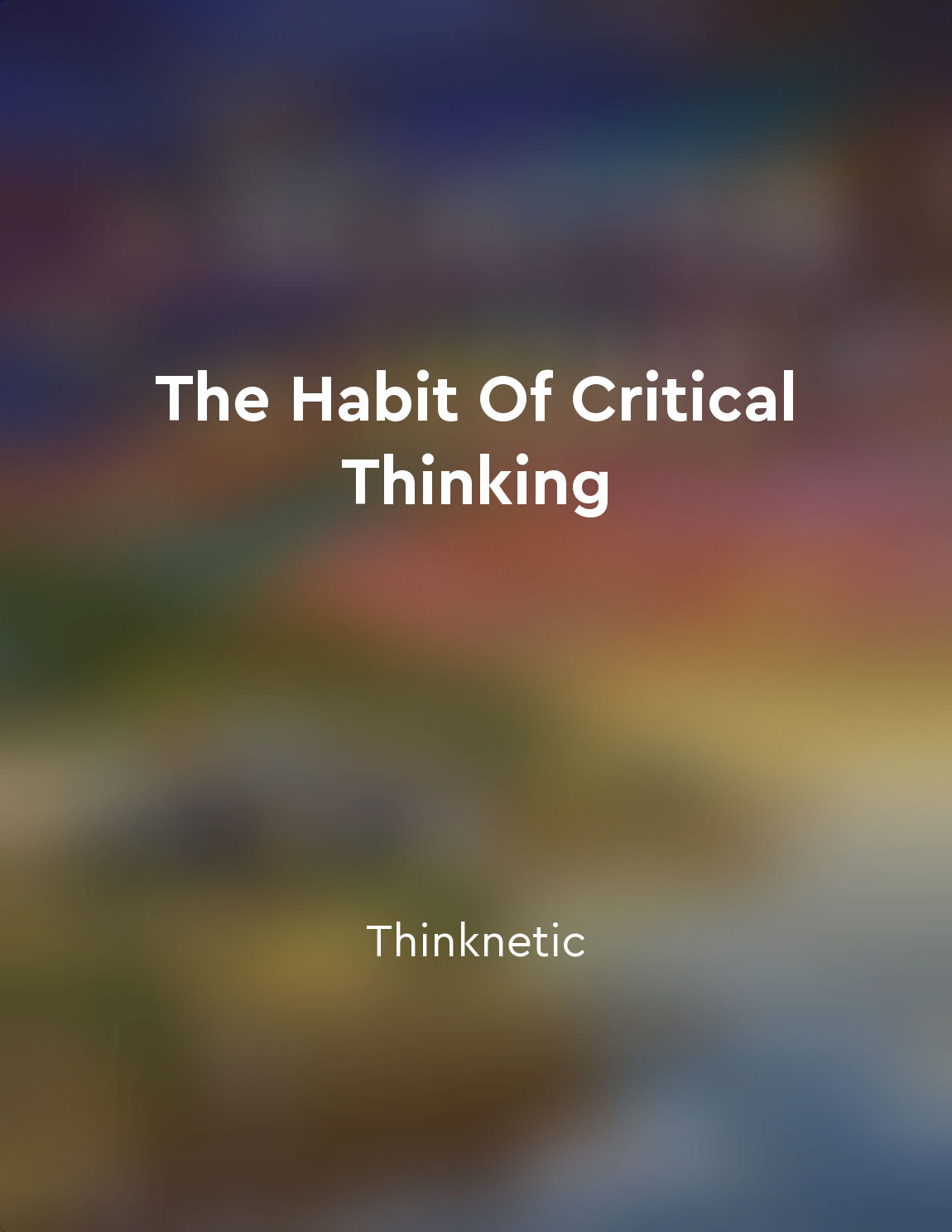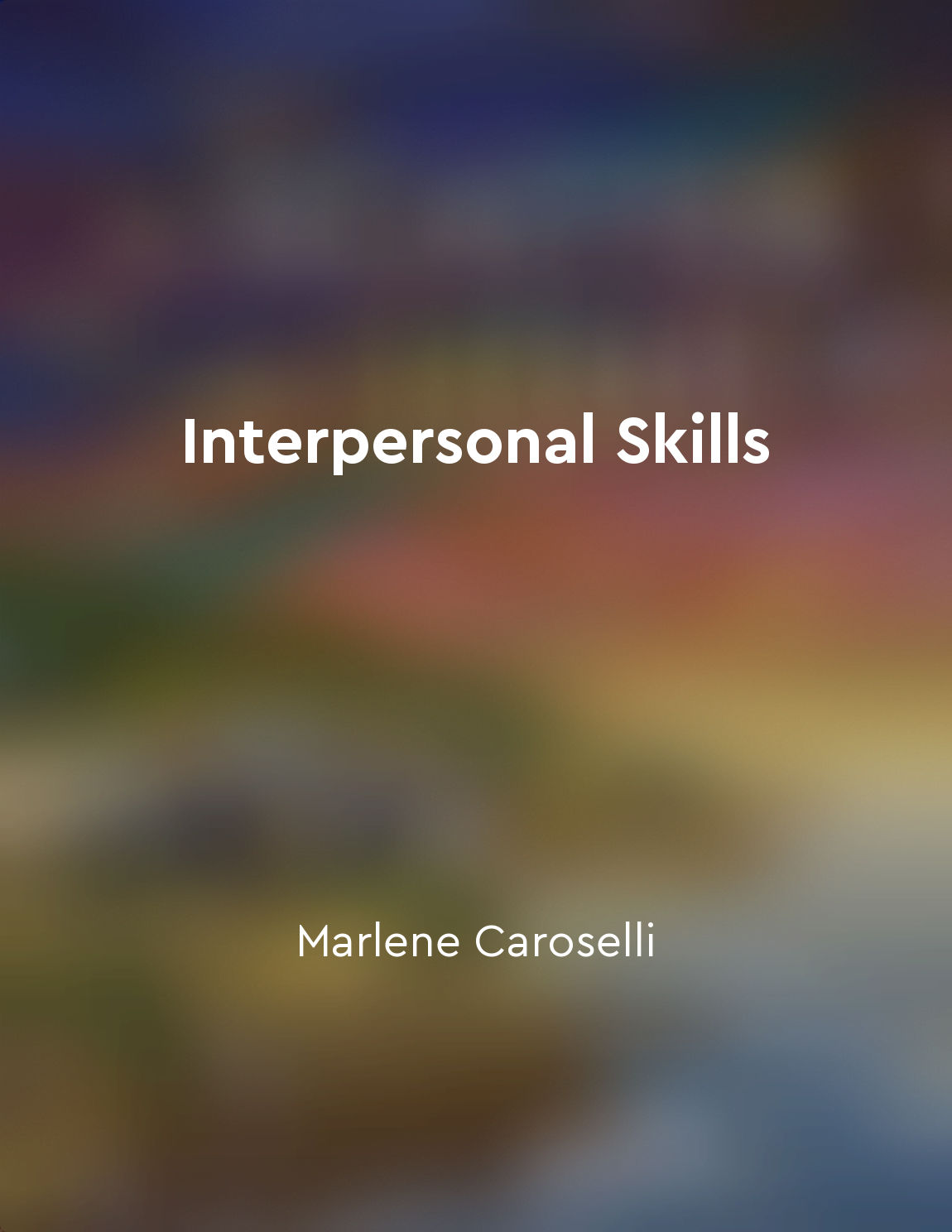Use questions to guide discussions from "summary" of Questions are the Answers by Allan Pease
When engaging in discussions, it is crucial to ask questions that lead the conversation in a specific direction. By using questions strategically, you can steer the dialogue towards the desired outcome. Questions serve as a compass, guiding the flow of the discussion and keeping it on track. They help focus the conversation on relevant topics and prevent it from veering off course. Asking the right questions can also encourage active participation from all parties involved. When people are prompted to think about their responses, they are more likely to engage with the discussion and contribute meaningfully. Questions stimulate critical thinking and promote a deeper level of understanding among participants. They compel individuals to reflect on their opinions and provide well-thought-out responses. Moreover, questions have the power to uncover hidden insights and perspectives that might not have been apparent initially. By probing deeper with thoughtful questions, you can unearth valuable information and gain a more comprehensive understanding of the topic at hand. Questions allow you to delve beneath the surface and explore different viewpoints, leading to a richer and more enlightening discussion. In addition, using questions to guide discussions can help maintain a sense of structure and organization. By establishing a clear direction through well-crafted questions, you can ensure that the conversation remains focused and purposeful. Questions act as signposts, guiding the progression of the discussion and preventing it from becoming chaotic or meandering. They create a logical flow that keeps everyone on the same page and moving towards a common goal.- Questions play a vital role in shaping productive and meaningful discussions. They serve as a tool for steering the conversation, encouraging active participation, uncovering hidden insights, and maintaining structure. By using questions strategically, you can guide discussions towards a more fruitful and enlightening outcome.
Similar Posts
Revisiting and reviewing material regularly boosts retention
Revisiting and reviewing material regularly is a crucial aspect of learning. It may seem counterintuitive, but the act of recal...
Understanding requires empathy
To truly understand someone, we must first be willing to put ourselves in their shoes. This requires empathy - the ability to f...
Acknowledge your biases and work towards overcoming them
It is important to recognize your biases and put in effort to overcome them when engaging in crucial conversations. Biases are ...
Provide opportunities for students to solve problems independently
Students need to be given the chance to work through challenges on their own. This kind of independence fosters critical thinki...
Coaches should be curious, nonjudgmental, and compassionate in their interactions with clients
In coaching, it is essential for coaches to adopt a mindset of curiosity, nonjudgment, and compassion when interacting with the...

Find a study buddy
One effective study strategy is to find a study buddy. This person can be a classmate, a friend, or even a family member. The k...

Our brains make predictions based on past experiences
Our brains are constantly striving to make sense of the world around us. One way they do this is by making predictions based on...

Critical thinking is essential
Critical thinking is not just a nice-to-have skill in today's complex world; it is an absolute necessity. Without the ability t...
Stay hydrated to support optimal brain function
Proper hydration is crucial for our bodies to function optimally, including our brain. When we don't drink enough water, our br...

Assertiveness means standing up for oneself while respecting others
Assertiveness is an essential interpersonal skill that involves expressing one's thoughts, feelings, and needs in a direct and ...

